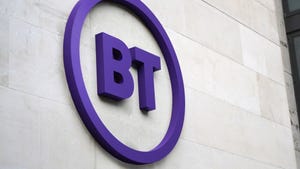There can be no let-up in the race to transform the UK’s digital infrastructure
After decades of under-investment, shoddy customer service, and lack of competition, the recent acceleration in full fibre infrastructure investment by alternative networks (Altnets) has given the UK telecoms & connectivity market a welcome shake
November 18, 2022

Telecoms.com periodically invites expert third parties to share their views on the industry’s most pressing issues. In this piece Jarlath Finnegan, CEO of Giganet, reflects on the latest political development in the UK as they affect the broadband sector.
The Conservative manifesto ahead of the 2019 General Election promised nationwide fibre to the premises (FTTP) coverage by 2025 and committed £5 billion in investment to support. That initial commitment was adjusted to 85% by 2025, with the remainder as soon as possible thereafter.
According to Ofcom’s connected nations report, Autumn 2022, just 11 million UK homes have access to the fastest full-fibre broadband and almost 30% are still unable to access gigabit capable broadband.
At a recent Prime Minister’s Questions, it was reassuring to hear the new Prime Minister Rishi Sunak acknowledge the role of broadband in providing levelling-up opportunities across our economy. However, our industry needs more clarity and robust commitments on how Government is going to continue to support the UK’S digital network builders.
Outlined are five reasons the Government needs to signal its support to the sector at this challenging time for our economy.
Private investment is driving economic growth
The £5 billion of public investment has been met with almost 5 times as much from the private sector as network builders continue to build a broadband network that will future proof Britain’s connectivity needs.
As an industry, the nation’s network builders are levelling up the UK by investing, creating jobs, driving growth and future-proofing its digital foundations. This is supported by studies commissioned by the UK’s National Infrastructure Commission (NIC) estimating net benefits from investment in FTTP with 100% coverage of up to £28 billion (in present value terms) by 2050.
Levelling up the UK
Digital infrastructure investment is a straightforward win and an enabler of levelling up and that’s why is critical to ensure we reach urban, rural and the harder-to reach areas. The smaller market towns and villages across the UK host a range of enterprises that will all benefit from the full fibre connectivity project Gigabit will deliver. Research by fibre infrastructure platform CityFibre has revealed economic benefits of over £38bn following its full-fibre rollout in 285 UK cities.
Addressing the digital divide
Access to full-fibre broadband is a must-have in today’s society with the increase in remote working. Yet, there are many places where high-speed internet is unavailable, inconsistent, or overpriced. The full fibre roll-out is critical to reducing the digital divide in areas of the country that currently experience vast differences in coverage and service quality. Today, internet access is as necessary as running water and electricity – we use it to work, learn and manage many aspects of our daily lives. We wouldn’t expect customers to tolerate lower quantities of water, which meant they couldn’t operate the washing machine or dishwasher, so why should it be acceptable that households don’t have a suitable broadband connection to serve their household needs?
Future-proofing connectivity needs
While the Copper network has served the UK well, how we interact with technology is changing at an accelerated pace, with working from home and increasing the number of household devices connected to the internet. And this is only going one way as homes adopt even more intelligent connected devices and we move to more interconnected systems, which will impact things such as how we manage our home’s security and heating systems.
Simply, the deployment of full fibre infrastructure is future-proofing the UK’s connectivity for generations to come.
Environmental Benefits
The full fibre deployment also has significant environmental benefits that will be key to the UK achieving its net-zero targets. Fibre is significantly more energy efficient than copper and enables more energy-efficient technology.
So, what is required from the Government?
After decades of under-investment, shoddy customer service, and lack of competition, the recent acceleration in full fibre infrastructure investment by alternative networks (Altnets) has given the UK telecoms & connectivity market a welcome shake – which is great news for consumers.
Without the Altnets’ significant investment, the futureproofing of the nation’s coast-to coast digital infrastructure will suffer. So It’s vital that government policy and regulator activity remains mindful of the customer when it comes to the market and competition.
High-level investment from independent broadband providers is propelling the UK forward in the delivery of nationwide full fibre infrastructure and this must continue. This future-proofing endeavour requires a diverse and competitive independent offering.
We need government backing and a supportive regulatory environment that enables fair competition and efficient roll-outs that don’t leave anyone behind.
We need digital infrastructure; we’ve been falling behind our peers in Europe for decades – we can’t keep dragging our heels. The industry has stepped up to the challenge, and we need the new Government to work with the industry to make project gigabit happen.
 Jarlath started out 25 years ago in Telecoms & Cable TV in England. Throughout his career, he has been involved in start up’s, scale ups and turnarounds. Jarlath joined Giganet in May 2021 as CEO during a pivotal time for the company under the new ownership of Fern Trading. Overseeing the imminent launch of a major recruitment drive, the unveiling of new plans to connect 300,000 homes in Hampshire, Dorset, Wiltshire & West Sussex and to be a challenger nationwide ISP. In September Giganet acquired Cuckoo in bid to shake up broadband market meaning the Full fibre specialist extends reach to nine million homes nationwide as it takes consumer favourite Cuckoo under its wing.
Jarlath started out 25 years ago in Telecoms & Cable TV in England. Throughout his career, he has been involved in start up’s, scale ups and turnarounds. Jarlath joined Giganet in May 2021 as CEO during a pivotal time for the company under the new ownership of Fern Trading. Overseeing the imminent launch of a major recruitment drive, the unveiling of new plans to connect 300,000 homes in Hampshire, Dorset, Wiltshire & West Sussex and to be a challenger nationwide ISP. In September Giganet acquired Cuckoo in bid to shake up broadband market meaning the Full fibre specialist extends reach to nine million homes nationwide as it takes consumer favourite Cuckoo under its wing.
Read more about:
DiscussionAbout the Author(s)
You May Also Like











_1.jpg?width=300&auto=webp&quality=80&disable=upscale)


.png?width=800&auto=webp&quality=80&disable=upscale)